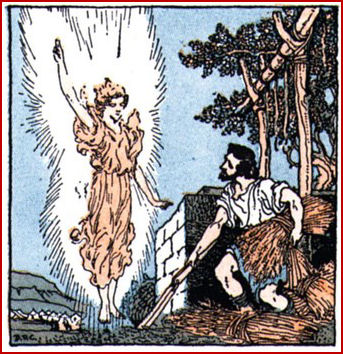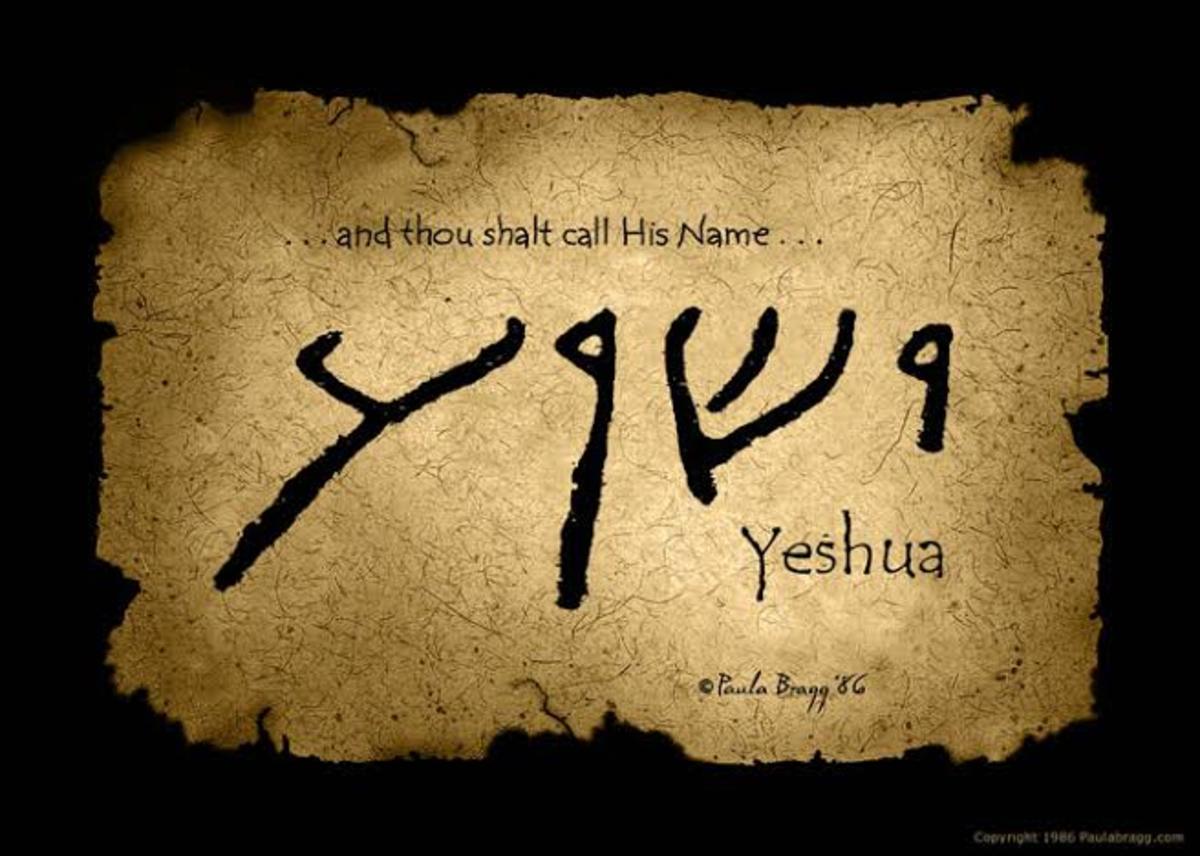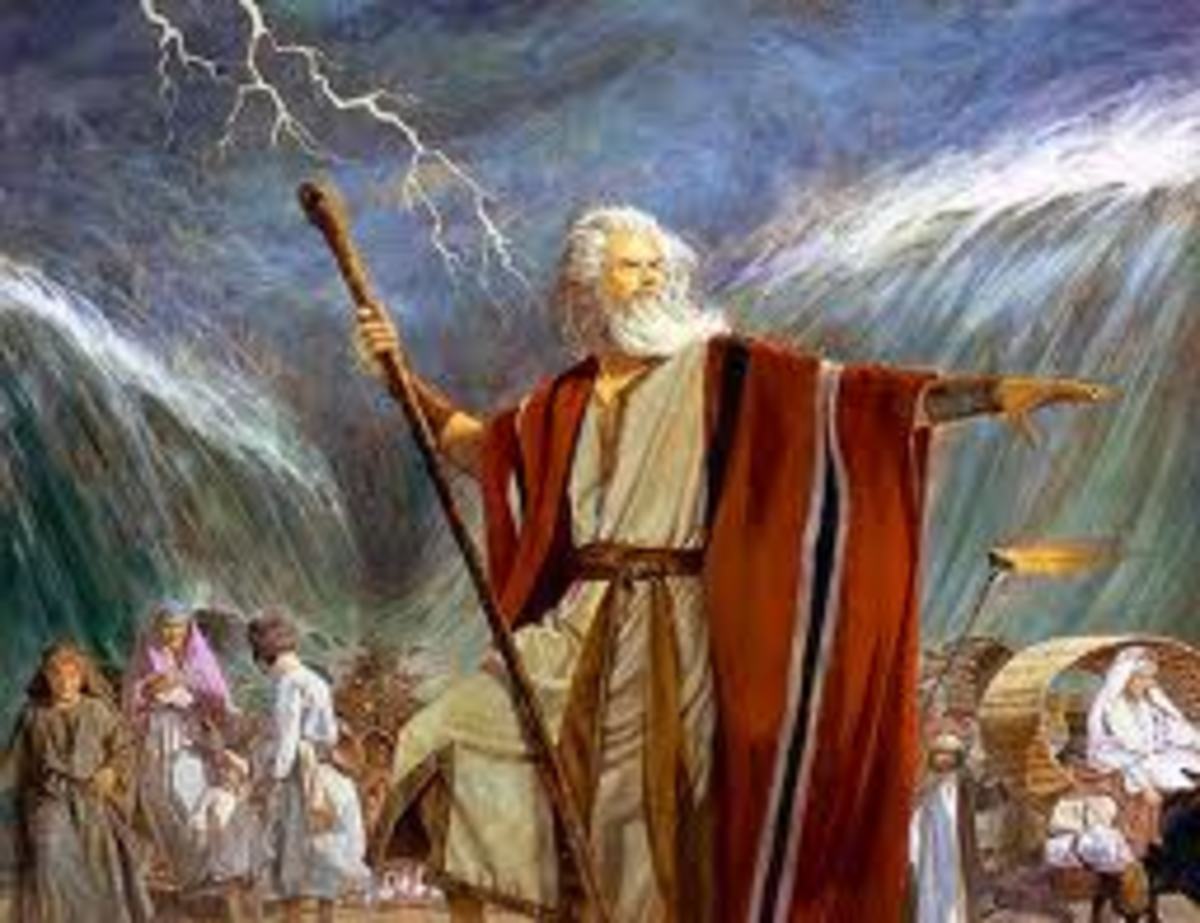Peace In Our Time - Jehovah-shalom

Judges 6:1-24
The Israelites did evil in the eyes of the Lord, and for seven years he gave them into the hands of the Midianites. Because the power of Midian was so oppressive, the Israelites prepared shelters for themselves in mountain clefts, caves and strongholds. 3 Whenever the Israelites planted their crops, the Midianites, Amalekites and other eastern peoples invaded the country. They camped on the land and ruined the crops all the way to Gaza and did not spare a living thing for Israel, neither sheep nor cattle nor donkeys. They came up with their livestock and their tents like swarms of locusts. It was impossible to count them or their camels; they invaded the land to ravage it. Midian so impoverished the Israelites that they cried outto the Lord for help. When the Israelites cried out to the Lord because of Midian, he sent them a prophet, who said, “This is what the Lord, the God of Israel, says: I brought you up out of Egypt, out of the land of slavery. I rescued you from the hand of the Egyptians. And I delivered you from the hand of all your oppressors; I drove them out before you and gave you their land. I said to you, ‘I am the Lord your God; do not worship the gods of the Amorites, in whose land you live.’ But you have not listened to me.” The angel of the Lord came and sat down under the oak in Ophrah that belonged to Joash the Abiezrite, where his son Gideon was threshing wheat in a winepress to keep it from the Midianites. When the angel of the Lord appeared to Gideon, he said, “The Lord is with you, mighty warrior.” “Pardon me, my lord,” Gideon replied, “but if the Lord is with us, why has all this happened to us? Where are all his wonders that our ancestors told us about when they said, ‘Did not the Lord bring us up out of Egypt?’ But now the Lord has abandoned us and given us into the hand of Midian.” The Lord turned to him and said, “Go in the strength you have and save Israel out of Midian’s hand. Am I not sending you?”“Pardon me, my lord,” Gideon replied, “but how can I save Israel? My clan is the weakest in Manasseh, and I am the least in my family.” The Lord answered, “I will be with you, and you will strike down all the Midianites, leaving none alive.” Gideon replied, “If now I have found favor in your eyes, give me a sign that it is really you talking to me. Please do not go away until I come back and bring my offering and set it before you.” And the Lord said, “I will wait until you return.” Gideon went inside, prepared a young goat, and from an ephahof flour he made bread without yeast. Putting the meat in a basket and its broth in a pot, he brought them out and offered them to him under the oak. The angel of God said to him, “Take the meat and the unleavened bread, place them on this rock, and pour out the broth.” And Gideon did so. Then the angel of the Lord touched the meat and the unleavened bread with the tip of the staff that was in his hand. Fire flared from the rock, consuming the meat and the bread. And the angel of the Lord disappeared. When Gideon realized that it was the angel of the Lord, he exclaimed, “Alas, Sovereign Lord! I have seen the angel of the Lord face to face!” But the Lord said to him, “Peace! Do not be afraid. You are not going to die.” So Gideon built an altar to the Lord there and called it The Lord Is Peace. To this day it stands in Ophrah of the Abiezrites.

Neville Chamberlain's "Peace In Our Time" speech
- Neville Chamberlain - Peace in our Time - YouTube
The original footage, Neville Chamberlain speech; Peace in our time
Introduction
Various historians have attempted to tabulate the amount of time human beings have been involved in war. Though figures vary, based on what I have found it could be summarized that out of the last 4,000 years of recorded human history, less that 300 of those years have been times of peace. There have been something like 8,000 peace treaties signed during that time, and most of them were broken. Some historians have estimated that there have been as many 14,351 separate wars in which an estimated 3 and a half billion people have been killed (that’s half of the current world population). In the last three hundred years, there have been 286 wars on the continent of Europe alone. It would be safe to say that attaining and maintaining peace has been one of humanity’s hardest tasks. Many have tried through various means to establish peace.
Over seventy-four years ago, British Prime Minister, Neville Chamberlain became famous for his speech made after he returned from the Munich Conference, where he followed a policy of appeasement toward Nazi Germany and gave in to its territorial demands. On September 30, 1938 Chamberlain spoke to a cheering crowd outside his 10 Downing Street residence and said: “My good friends…I believe it is peace for our time. We thank you from the bottom of our hearts. And now I recommend you to go home and sleep quietly in your beds.”
“Peace for our time,” The words became a bitter irony because less than one year later, because of Germany’s invasion of Poland, Chamberlain was forced to announced to the British people that Great Britain and its allies were at war with Germany. So much for peace for our time: England and most of the rest of the world (including the United States) were plunged into World War II over the next few years, a second global conflict in less than thirty years.
Peace for our times: is that really possible? Our nation is currently involved in more than one conflict, depending on how you define it. Why is peace such a difficult thing to attain? Coming closer to home, peace is also something we all wish for within and around our own lives. We have strife in our neighborhoods, turmoil in our families, and even strife and turmoil within our own selves. We wish that we could have peace for our own selves.
Gideon's Turmoil
The Old Testament reading above introduces to us a man who was experiencing a life of turmoil. The main character in the story, named Gideon, grew up in a land that was occupied by a group of marauders, called the Midianites. The Midianites were nomads who came from the land east of the Jordan River. These nomadic raiders were oppressing the Israelite people by controlling the verdant valleys, while the people of Israel were forced to live in hideouts in the hills. Whenever the Israelites attempted to harvest their crops, the Midianite raiders came in to steal it. The story of Gideon opens in this setting when he was surprised by an angelic visit when he was threshing wheat secretly at a wine press (the situation was so bad that he wasn’t threshing wheat in the open, like normal, but was doing it at a wine press so the Midianites wouldn’t notice and steal the wheat).
Gideon was shocked when the angel greeted him by saying: “The LORD is with you, you mighty man of valor.” Gideon argues back, ‘Oh yeah, well, if the LORD is with us, how come we’re experiencing all of these calamities? How come we’re suffering so much if God is with us?!’ Then God answered directly by telling Gideon that he was to be the one to deliver Israel from their oppressors. The answer to your question is you. To this, Gideon says, ‘No, no, you have the wrong guy. I can’t save Israel. How can I save Israel? My clan is the weakest in Manasseh, and I am the least in my family.” God told Gideon, ‘You can do it because I have enabled you and I will be with you.’ Not quite convinced, Gideon asked for a sign. He was instructed to bring an offering, and when God burned up the offering, Gideon was finally convinced. In fact, Gideon was petrified when he realized that he had been talking directly with God, but God assured him that all would be well: “Peace be to you; do not fear, you will not die.” Gideon worshiped God after this, by building an altar, and naming it Jehovah-shalom, The LORD is Peace.
Names Of God
In the last few Hubs in this series, we have been looking at various stories in the Old Testament that teach us something about God. In these stories, a compound name of God is revealed: Jehovah, the proper name of God, is used along with a descriptive term.
Over the course of this series, we have looked at the name God as the Mighty Creator, our Provider, our healer, and our Banner. We also looked at how God is the One Who Makes Us Holy, and that God is Jealous for us. In the last Hub, we looked at how God is the God of our Ancestors and challenges us to continue in the work of faith. So another compound name is revealed in today’s story in Judges: Jehovah-shalom – The LORD is Peace.
You might recall that we looked at the fact that the name of God can be rendered in more than one way due to the trouble in translating Hebrew into English. For the sake of consistency, in this series, I am using the form Jehovah. But if you were to read these stories in an English translation of the Bible, you would notice that the word “Jehovah” is not in the text. What Bible translators do is use the word LORD – with capitol letters, with the letter L printed a little larger – in place of the name of God. Translators use this form out of respect for the Jewish custom of not speaking the name of God, believing that it was too holy to speak out loud. If you were to look at this verse (and other verses using God’s name) in a paraphrase Bible (like the Living Bible), you will see the name Jehovah used. So with the compound names, a characteristic of God is attached to Gods name so that we learn something more about God from the story. With this story, the characteristic is that God is peace.
The Shalom Of God
This may be the first time that most of us knew what the Hebrew word is before today. I’m guessing you didn’t know what the Hebrew words, elohim, jireh, raphe, nissi, m’kadeshkem, qanna, or elohe abotkem meant before we looked at them over the last few weeks, but I bet you knew what shalom meant. Shalom is the Hebrew word for peace.
Shalom is a beautiful word, so much richer in meaning than our English word peace. Meaning much more than simply the absence of conflict, shalom also means health, wholeness, well-being, security, strength and vitality. Over the centuries, shalom has been used in greetings and in when individuals part because when you wish someone “shalom” you are wishing them health and well-being. You are giving them a blessing. So when Gideon heard God say “Peace be with you,” he was hearing God say that thingswould go well with him. And when Gideon named the altar “God is peace,” he was acknowledging the fact that Jehovah is the source of shalom: peace, health, and well-being.
It could be argued that this name (as well as another one we looked at) is not actually a name for God but rather, a name of an altar built because of something that God did. I think it’s safe to say however, that since we so often learn about God, and the characteristics of God within the various events in life, we can think of these names applied to the altars as names for God as well.
What's Peace Got To Do With It?
This is important to understand because the same God who Gideon called peace led him into battle. And if you think about it, you might wonder why Gideon uses the characteristic of peace to describe God. Not only was Gideon concerned for the fate of his people who were being oppressed by foreign invaders, he was also trembling with fear and doubt because God told him that he was to be his people’s deliverer.
But peace is appropriate when we look at its wider meaning in shalom because it speaks of a God who calms our fears, helps us through our times of turmoil and trouble blesses us with healing and wholeness of body, mind and soul.
Though it’s beyond our purposes today, we should summarize the end of the story of Gideon. Gideon tore down the idol shrine, then gathered an army to fight the Midianites. But, following God’s instructions to take only a small band of fighters, Gideon and his men confronted the Midianites at night. They carried with them clay pots with candles in them and at the appointed time, broke the pots and shouted their war cry. The sudden light, sounds of the breaking pottery and shouting tricked the Midianites into thinking that a large army was about to assault their camp. In this way, God defeated Israel from the oppression of Midian, and Israel enjoyed God’s shalom for a time.
God's Shalom For Us
As we wrap up this story, we need to ask ourselves how we can also experience God’s peace. How does Jehovah-shalom impact our lives today? How do we achieve peace for our times? First we need to ask exactly what peace is. This may seem like an obvious thing, but humanity so often mistakes peace for oppression of another. In the military, we used to circulate the joke of “peace through superior firepower,” which isn’t very funny because history has proved time and again that the next war springs up out of such oppressive conditions. On the opposite extreme is that we think of peace as some kind of mindless serenity, linking it with inactivity.
The story is told of a wealthy man sought for the perfect picture of peace. Not finding one that satisfied, he then announced that he would sponsor a contest to produce this masterpiece that he sought. The challenge stirred the imagination of artists everywhere, and paintings arrived from far and wide. Finally the great day of revelation came. The judges considered one peaceful scene after another, while viewers looked on, clapping and cheering as each one was unveiled. The tensions grew as only two pictures remained veiled. As a judge pulled the cover from one, a hush fell over the crowd. The painting showed a mirror-smooth lake reflected lacy, green birches under the soft blush of the evening sky. Along the grassy shore, a flock of sheep grazed undisturbed. Surely this was the winner, people thought. The last painting was unveiled by the man who had sponsored the contest, because the last one was his selection. As the cover came off the painting, the crowd gasped in surprise; how could this be peace, they thought? The painting pictured a tumultuous waterfall cascaded down a rocky precipice; the crowd could almost feel its cold, penetrating spray. Stormy-gray clouds threatened to explode with lightning, wind and rain at any moment. In the midst of the thundering noises and bitter chill, a spindly tree clung to the rocks at the edge of the falls. One of its branches reached out in front of the torrential waters and in that branch was a nest. A little bird had built a nest in the elbow of that branch. Content and undisturbed in her stormy surroundings, she rested on her eggs. With her eyes closed and her wings ready to cover her little ones, she manifested peace that transcends all earthly turmoil.
That, my friends, is what true peace is. In this world we will always be dealing with some kind of trouble, turmoil, conflict, tension, fear, trial, pain and uncertainty. But despite all of that, we can have peace with God despite our circumstances.
So how do we attain God’s shalom?
1) We need to be right with God.
In our Scripture reading, Israel (and Gideon) was living apart from God’s standard and worshiping worthless idols instead of being true to God. When the people cried out to God and repented, God raised up a deliverer and brought about their deliverance. Perhaps we don’t feel God’s peace because there’s a sin issue in our lives. To receive God’s peace we need to seek to live by God’s standard. Ask God to show you if there is something in your life that is hindering your relationship with God. Then, with God’s help, make the necessary changes. When we truly seek to live as God desires, we will be granted God’s peace.
2) We need to accept God’s strength.
Gideon realized that he was not capable of being God’s deliverer of God’s people. God soon showed Gideon that it wasn’t going to be by Gideon’s strength and ability anyway. God strengthened and enabled Gideon to do the things that he needed to do. The same is true with us. I doubt that God will call you to command an army to drive out invaders from your hometown, but God is calling you to live in a certain way. Because of our sinful world, we are not able to live by God’s standard, but we can do it through God’s strength. Perhaps God is calling you to do some special task and you are resisting. You say, ‘Lord I can’t do that! You must have it wrong, you can’t mean me. You need to find someone else to do that.’ But when you respond in trust and obedience to God’s call, God will enable you to do what God wants you to do.
Conclusion
If we want to know and experience peace, we need to live in peace. In John 14:27, Jesus reminded His disciples that they were going to experience hardship and trouble, but don’t worry, He said, “Peace I leave with you; my peace I give to you. I do not give to you what the world gives.”
That sure is a good thing, because what the world gives is false peace and false security, and trouble and turmoil. What we need is: Jehovah-shalom – the God of peace to grant us the peace that defies all worldly understanding.









